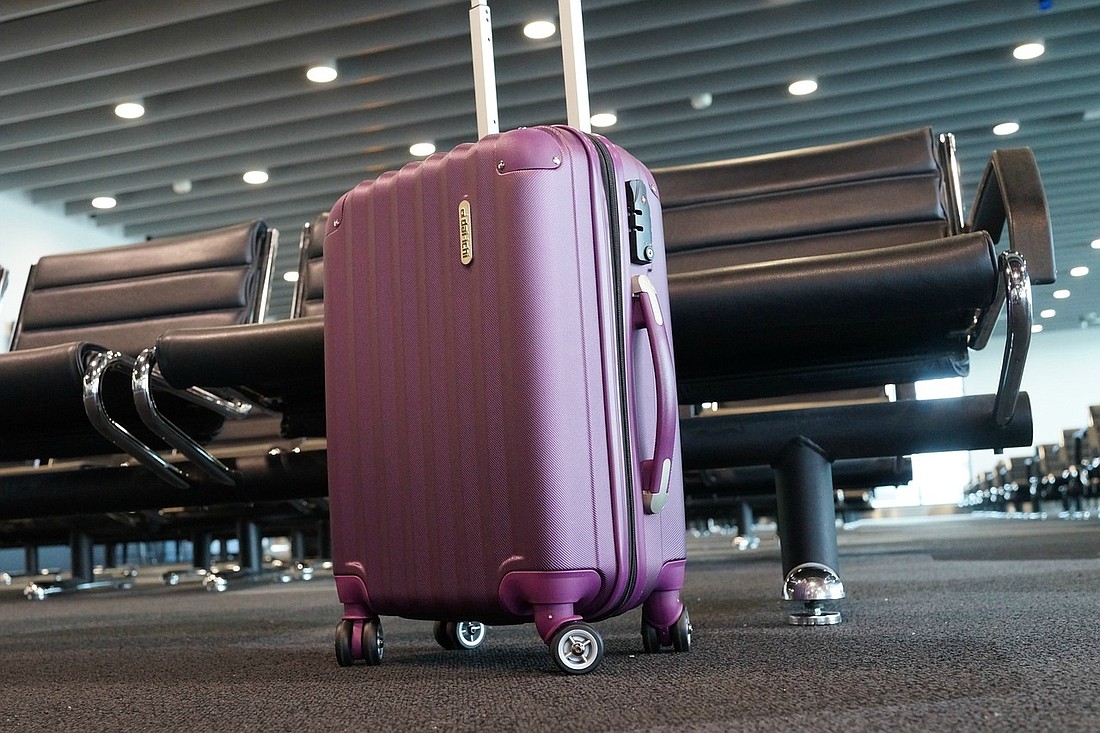- April 22, 2024
-
-
Loading

Loading

This year, I'm going to travel more.
Sound familiar? If this was your New Year's resolution, and you're planning to follow through, chances are you're starting to plan your upcoming trip. But with the recent concerns over the coronavirus, as well as general health-related questions that arise when abroad or on the road, can you travel safely?
Dr. Viviane Bishay, family medicine physician at AdventHealth Palm Coast, shared a few tips on how to stay healthy while traveling. And while the Centers for Disease Control and Prevention recommends people avoid all nonessential travel to China, the rest of the world is your oyster.
“There no [travel] restrictions so far, so we don’t have to be alarmed or stop traveling until we have other recommendations," Bishay said.
Regardless if you're taking your first long-haul trip across the Atlantic, catching a cruise to the Caribbean or planning a road trip across the U.S., hand hygiene is essential. Bishay recommends always washing your hands before eating, after touching common areas and before touching your face.
Travelers can keep a small hand sanitizer on their person to aid with this, Bishay said. As long as it's under 3.4 ounces, you'll be able to take it on planes as well.
Personal space plays a factor too.
“If you see anybody that looks sick, you can stay away from them," Bishay said.
For better circulation, she always recommends patients get up from their seats during a flight. Passengers should also stay hydrated and try not to sleep through the whole flight. If you have compression stockings, you may want to wear them.
If pregnant, travelers should check in with their primary care physicians before flying. Doctors typically recommend women in their third trimester abstain from air travel.
Bishay also recommends travelers get up to date with their routine vaccinations, such as the flu, measles, mumps and chickenpox.
“It’s unlikely to catch those here, but as you travel to other countries, you don’t think about those, but it’s very likely to catch those," Bishay said.
Travelers may also need other vaccines depending on which country they plan to visit, so a visit to their primary care physician is in order, Bishay said. Travelers could also need prescriptions for preventive medication for diseases like malaria.
If you rely on a specific medication for everyday health, you should also plan to see your doctor and get a refill early. Bishay recommends bringing enough medication for your trip, and then some, in case you are delayed.
It's also not a bad idea to bring your own over-the-counter medicines, Bishay said, especially when traveling to a country who speaks another language.
Those planning a cruise should also have a plan in case they get seasick, she said. When on a cruise, it's also important you don't overeat or drink too much alcohol, as that could play a factor in seasickness too.
When taking a road trip with young children who need car seats, parents should make sure the ones in use are appropriate for the age and size of the child, said Dr. Katarzyna Madejczyk, a physician at AdventHealth Daytona Beach.
Over the years, the recommendations have changed.
“There are no hardcore age and weight limits anymore," Madejczyk said. "The recommendations are to keep children in rear-facing car seats as long as possible, until they outgrow basically the height and weight limit of the car seat, as prescribed by the manufacturer.”
She explained that studies show children who are rear-facing in the backseat of a vehicle are less likely to suffer an injury in a crash. A car seat should be replaced if involved in a crash, even if it looks okay; it could have hidden structural damage.
Children should stop using a car seat only when a seatbelt fits properly, Madejczyk said. That's usually when they're about 4 feet, 9 inches tall or 8-12 years old. The lap belt should sit across the hips and pelvis, the shoulder strap across the middle of the shoulder and the chest. The American Academy of Pediatrics recommends all children under 13 ride in the backseat of a vehicle.
Consider entertainment during trips, such as videos on a mounted iPad or tablet; toys that keep them occupied and comfortable are also good.
“But the other thing is taking breaks, because kids do get really tired and sometimes taking a break during the trip — stopping at a rest area and letting them stretch out — will I think make them happier, and make the parents happier and the trip not as long," Madejczyk said.